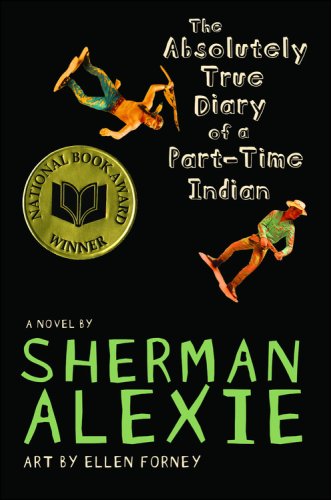Banned Book Week?
The “ALA” Banned Book List and Week is, I have stated before and will state again, a joke and a cheap marketing gimmick. There is an element of back-slapping here for everyone upholding First Amendment values, and keeping the flame of reading and the exchange of ideas flowing. The campaign goes with libraries and book stores throwing up a display — “I Read Banned Books”. Questions loom — Why do I not feel terribly rebellious for having read some of them, and is it okay if I read some non-banned book?
The list always produces certain arch-types. This year’s “Heather Has Two Moms” is “And Tango Makes Three”. I have never seen either book, but judging from the descriptions I think this makes for an improvement — the story of the gay penguins sounds more promising.
One year we have Orwell’s 1984, the next (and this year) Huxley’s Brave New World, another perhaps Bradbury’s Fahrenheit 451. This gets picked up in the “irony” meter for some cheap message. Let me know if you are having trouble finding a copy of Brave New World.
I see Stephanie Meyer’s Twighlight made the list. This straddles a couple of genres which always find its way here — sort of both Gossip Girl and Harry Potter. There’s always room for angry yammering about the “Occult” on the latter score. On the former, I will take this as an upgrade. Some time ago, I listened as an early 20s-year old described a show he was that came from the WB, (Roswell) and his comment — “It was exactly like Twilight”. I had the same reaction on seeing a Twilight parody on SNL — “They could have done this sketch several years’ back and it would’ve been a parody of one of the WB’s teen drama.” But the formula runs deep. Thinking about these things, it occurs to me that the WB had a makeshift affiliate line-up, not gettable everywhere, so maybe the line “Let me know if you’re having trouble finding a copy” could have attached itself to Roswell. As for Gossip Girl, I imagine a good case made for opting out of it due to allocation of researches at most school libraries, though school librarians seem to just as soon bring it in with an auxiliary “Beyond Gossip Girl” list the ALA likes to throw together for popular books, particularly of iffy literary value.
Good news… maybe? I actually recently read the number two book on the list. Sherman Alexie’s New York Times best-seller “Absolutely True Diary of a Part-Time Indian”.

I guess I recommend it? Can’t hurt — you are beyond its reading level, so it’ll only take a couple of hours.
I imagine any young adult book that passes a few mentions of masturbation is going to get a few parents gnashing their teeth, whether the fuller implications of the book’s social and political messages is or is not the unstated subtext of any complaints. It’s a a book which apparently is read in High School literature classes, and the good news here is that if some parents have scuttled in some districts it out of being taught in the classroom, the book comes with a study guide of pointed essay questions for kids who want to create that experience denied to them.
Hm. Here’s something a little bit more honest than “banned book week” to get riled about:
The US Justice Department is asking a federal judge in South Carolina to allow it to intervene in a lawsuit against a sheriff who allegedly forbids prisoners in his jail from receiving books, magazines, or printed materials other than copies of the King James version of the Bible.
Berkeley County Sheriff H. Wayne DeWitt denies that restrictions imposed at the county lockup in Moncks Corner, S.C., rise to the level of a constitutional violation or violate US law.
He maintains that any actions taken at the jail are justified to preserve health and safety, and to further the pursuit of “legitimate penological objectives.â€
Send them the Penguin book.
Also of more censorship concern:
New guidelines issued on March 31 discourage plot lines that contain elements of “fantasy, time-travel, random compilations of mythical stories, bizarre plots, absurd techniques, even propagating feudal superstitions, fatalism and reincarnation, ambiguous moral lessons, and a lack of positive thinking.”
“The government says … TV dramas shouldn’t have characters that travel back in time and rewrite history. They say this goes against Chinese heritage,†reports CNN’s Eunice Yoon. “They also say that myth, superstitions and reincarnation are all questionable.â€
Given the recent changes made to Red Dawn to appease China, we can only hope our film industry doesn’t start making movies to appease Chinese Government officials.